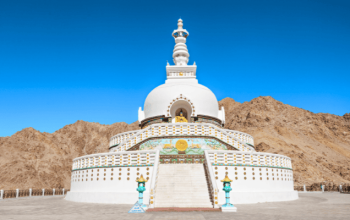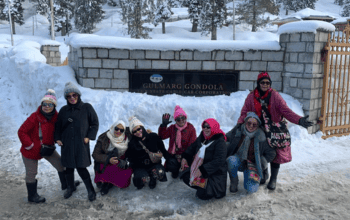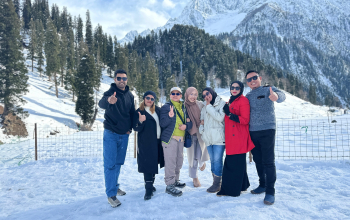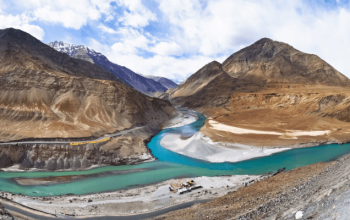Exploring Kashmir’s History, Culture, and Conflict
Nestled in the majestic Himalayas, Kashmir is a land of breathtaking beauty and profound complexity. Often called the “Paradise on Earth,” this region weaves a tapestry of rich Kashmir history, vibrant Kashmir culture, and intricate Kashmir conflict. This article invites you to journey through the ancient origins, diverse traditions, and geopolitical tensions that define the Kashmir Valley. Whether you’re a history enthusiast or a curious traveler, let’s uncover the captivating story of Kashmir and its enduring allure.
Kashmir’s History: A Legacy of Ancient Civilizations

The story of Kashmir’s history stretches back millennia, rooted in myth and reality. According to Hindu legend, the sage Kashyapa drained a vast lake to create the fertile Kashmir Valley, giving it the name “Kashyapamira.” By the 3rd century BCE, Emperor Ashoka introduced Buddhism, transforming Kashmir into a hub of spiritual and intellectual pursuit. As a key stop on the Silk Road, the region absorbed influences from India, Central Asia, and China, fostering a unique cultural blend. Britannica
In the 14th century, the establishment of the Shah Mir Dynasty under Sultan Shams-ud-Din marked the rise of Islam in Kashmir. Sufi mystics played a pivotal role in shaping a peaceful coexistence of Hindu and Islamic traditions. By the 16th century, Mughal Emperor Akbar annexed Kashmir, adorning it with iconic gardens like Shalimar Bagh. After the Mughal decline, Afghan and Sikh rulers took control, and in 1846, the British sold Kashmir to Maharaja Gulab Singh of the Dogra Dynasty via the Treaty of Amritsar, setting the stage for modern conflicts. History.com
Colonial Era and the Road to Partition
Under Dogra rule, Kashmir’s Muslim majority faced feudal oppression, sowing seeds of discontent. When British colonial rule ended in 1947, Kashmir became a flashpoint between newly independent India and Pakistan. Maharaja Hari Singh, a Hindu ruler, hesitated to join either nation. Following an invasion by Pakistani tribes, he signed the Instrument of Accession to join India, triggering the first India-Pakistan war (1947–1948). This conflict birthed the Line of Control (LoC), dividing Kashmir into Indian-administered Jammu and Kashmir and Pakistan-administered Azad Kashmir. BBCThe legacy of this division continues to shape Kashmir’s history, with subsequent wars in 1965, 1971, and the 1999 Kargil conflict reinforcing the region’s contested status. As of 2025, Kashmir remains a focal point of geopolitical tension. Al Jazeera
Kashmir Culture: A Tapestry of Diversity
Kashmir culture is a vibrant mosaic shaped by its diverse inhabitants. The Kashmir Valley, predominantly Muslim, speaks Kashmiri and Urdu, while Jammu’s Hindu communities use Hindi, Punjabi, and Dogri. In Ladakh, Tibetan-Buddhist populations speak Balti and Ladakhi. This diversity fosters a rich cultural identity, evident in art, music, and cuisine. From intricate pashmina shawls to soulful Sufi music, Kashmir culture reflects centuries of syncretism. India.com
Art, Craft, and Culinary Traditions
Kashmir is renowned for its craftsmanship, including handwoven carpets, delicate pashmina shawls, and walnut wood carvings. These crafts, often adorned with Mughal-inspired motifs like chinar leaves, showcase the region’s artistic heritage. Music and poetry, influenced by Sufi traditions, thrive through forms like Chakri and the works of poets like Lalla Ded, who bridged Hindu and Islamic philosophies. Cultural India
Kashmiri cuisine is equally captivating. Dishes like rogan josh (spiced lamb curry), dum aloo (potatoes in rich gravy), and yakhni (yogurt-based meat stew) reflect Mughal and Central Asian influences. The aromatic kashmiri kahwa, a saffron-infused tea, is a staple of hospitality. Festivals such as Shivratri (Hindu), Eid (Muslim), and Losar (Buddhist) highlight Kashmir’s cultural harmony despite its turbulent history. Tourism of India
Kashmir Conflict: A Complex Geopolitical Struggle
The Kashmir conflict is one of the world’s longest-running territorial disputes, rooted in the 1947 partition of British India. Pakistan claims Kashmir due to its Muslim-majority population, while India views it as an integral part of its secular state. The 1947–1948 war established the Line of Control, but tensions persisted through subsequent conflicts in 1965, 1971, and 1999. The 1989 insurgency in Indian-administered Kashmir intensified demands for independence or unification with Pakistan, leading to decades of unrest. Council on Foreign Relations
Modern Developments and Ongoing Tensions
In 2019, India revoked Jammu and Kashmir’s special autonomy under Article 370, integrating it fully into the Indian Union. This move sparked protests and strained India-Pakistan relations further. As of 2025, incidents like ceasefire violations along the LoC and localized unrest underscore the fragility of the Kashmir conflict. The region’s strategic importance and nuclear capabilities of both nations heighten the stakes, making resolution elusive. The Hindu
Peace Efforts and Challenges
Efforts to resolve the Kashmir conflict include UN resolutions calling for a referendum, which has never materialized due to preconditions like troop withdrawal. Bilateral talks and confidence-building measures have yielded limited success. Scholars like Pervez Hoodbhoy advocate for rational dialogue to avert escalation, emphasizing the catastrophic risks of nuclear conflict. Grassroots initiatives and people-to-people contact offer hope, but political will remains a barrier. Dawn
Why Visit Kashmir? A Traveler’s Paradise

Despite the Kashmir conflict, the region’s natural beauty and cultural richness make it a must-visit destination. Srinagar’s Dal Lake, with its iconic shikara boats, offers serene beauty. Gulmarg’s snow-covered slopes attract skiers, while Pahalgam’s lush valleys enchant nature lovers. With careful planning, travelers can safely explore Kashmir’swonders. Ready to experience the magic of the Himalayan valley? Discover our tour packages and embark on an unforgettable journey!
Travel Tips for Kashmir
Visit during spring or autumn for pleasant weather. Check official travel advisories and partner with trusted tour operators for a seamless experience. From exploring Kashmir’s history to immersing in Kashmir culture, a trip to Kashmir promises memories that last a lifetime. Government of India Tourism
Understanding Kashmir’s history, culture, and conflict offers a deeper appreciation of this extraordinary region. Beyond its challenges, Kashmir remains a beacon of resilience and beauty. Plan your visit today and discover the heart of the Himalayas with us!










No comment yet